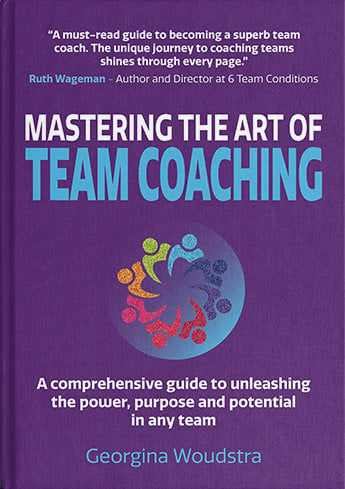Over the next 5 years, team coaching stands to become bigger than executive coaching! Why? Because organisations are webs of teams and teams are where the work gets done. Teams almost always make better decisions than individuals and can achieve huge improvements in areas including customer experience, employee satisfaction, and operational performance.
High-performing teams provide organizations with an undeniable advantage. A report by Mckinsey shows that 90 percent of investors think the quality of the management team is the single most important nonfinancial factor when evaluating an IPO and there is a 1.9 times increased likelihood of having above-median financial performance when the top team is working together toward a common vision.
So rather than investing in developing individuals in the hope of greater organisational success, it makes sense to invest in teams and achieve a bigger ROI, right? Yes, but factor in that few teams ever reach their full potential.
What does that mean for team coaches in the making? A quick calculation can help us quantify the opportunity that lies ahead. We know that the worldwide labour force consists of 3.4 billion people. Let’s suppose that 80% of these people spend at least some of their time working in teams. That’s 2.7 billion people. And let’s suppose, for the sake of ease, that the average team consists of 10 people, which gives us 270 million teams spread across a myriad of organizations throughout the world. Of these, at least 75% are dysfunctional, failing to meet at least three of the following five criteria: meeting a planned budget, staying on schedule, adhering to specifications, meeting customer expectations, and maintaining alignment with the company’s corporate goals. Some research puts this percentage even higher but for the sake of our argument let’s remain conservative and assume 70% of the 270 million teams in the world do not live up to their potential. That gives us a whopping 190 million teams that would benefit from a little team coaching!
Because we know from a growing body of research that team coaching influences team performance results significantly. In their research and findings, Haug & Enz (2011) stated that coaching techniques play an important role in accelerating the formation of positive groups and achieving maximum group performance. This in line with the statement of Owsukowska & Pindelski (2010), where it is said that coaching techniques allow groups to get better results and is also proven in improving efficiency and management in groups. Reinforced again by the findings of Woodhead (2011), which shows that coaching techniques support workgroups in improving communication, providing focus and clarity of shared goals, increasing trust and collaboration as well as approaches to problem-solving, decision making and commitment to achieving shared results.
Clearly, teams are where it’s at and team coaching works! And with only a few thousand qualified and talented team coaches in the world, the prospect represented by the aforementioned 190 million teams that are malfunctioning is almost too big to fathom.
What are you waiting for?
Join our Introduction to Team Coaching and find out our approach to creating great team coaches.



